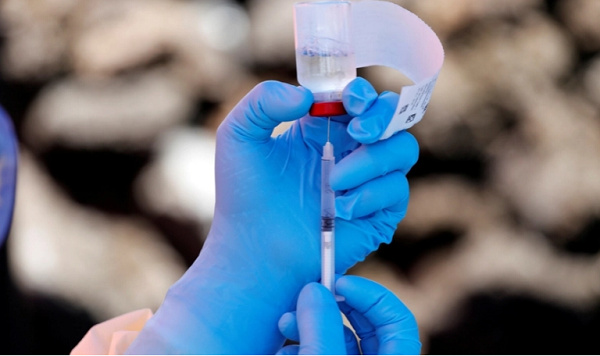 |
| The African Union and its partners had expected to buy half the doses needed |
GENEVA, Sept 16 (NNN-AGENCIES) — The World Health Organization (WHO) and its partners have said they hope to provide Africa with about 30 percent of the COVID-19 vaccines the continent needs by February, badly missing the 60 percent vaccination coverage goal that African leaders had once hoped for this year.
Out of 5.7 billion doses of coronavirus vaccines administered around the world so far, only 2 percent have been in Africa.
The African Union accused manufacturers of COVID-19 shots of denying African countries a fair chance to buy them and urged manufacturing countries – in particular India to lift export restrictions on vaccines and their components.
“Those manufacturers know very well that they never gave us proper access,” Strive Masiyiwa, AU Special Envoy for COVID-19, told a WHO briefing from Geneva. “We could have handled this very differently.”
But the companies that manufacture the vaccines including Pfizer-BioNTech and Moderna have shown no indications they are eager to switch their current tactics, which involve appealing to rich countries and their regulators to authorize booster shots.
Masiyiwa stressed that, in aiming to vaccinate 60 percent of its population, the African Union and its partners had expected to buy half the doses needed, while half were expected to come as donations through the COVAX program, backed by the WHO and the GAVI global vaccine alliance.
“We want access to purchase,” he said.
GAVI CEO Seth Berkley said his organization had been counting on supplies from India the world’s largest vaccine manufacturing center at the start of the outbreak but had received no doses from India since March when India imposed export restrictions.
Masiyiwa added: “The suppliers over the last eight to nine months have made it clear that the biggest challenge they face is export restrictions.”
He urged the World Bank and the International Monetary Fund to begin working on a standby pandemic readiness fund to help poorer nations buy vaccines in the future, instead of having to rely on a sharing facility like COVAX – which has so far managed to provide only 260 million doses.
“Vaccine sharing is good but we shouldn’t have to be relying on vaccine sharing, particularly when we can come to the table with structures in place and say we also want to buy,” he said.
He reiterated a demand for patent waivers on vaccines, saying that Africa wanted to set up its own manufacturing capacity.
Tedros called last week for a “moratorium” on the use of boosters in healthy populations until the end of the year. Countries including Israel, France, and Germany have already started dispensing third doses to certain groups.
In the US, the FDA is going to publicly debate the topic of boosters this week. In an opinion piece on Monday, two top FDA officials and senior WHO scientists wrote in the Lancet that the average person does not need a booster shot.
To date, fewer than 4 percent of Africans have been fully immunized and most of the vaccine doses administered around the world have been given in just 10 rich countries.
COVAX is set to fall nearly 30 percent short of its previous goal of two billion shots this year. GAVI and the WHO have blamed the shortfall on a range of factors including export restrictions on the Serum Institute of India (SII). — NNN-AGENCIES





